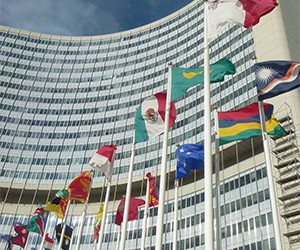Diplomatic & Public Affairs
As institutionalised multilaterism grows and domestic affairs become more enmeshed in the international system, the role of international officers and diplomatic personnel is of more pertinence to achieving national objectives. Our training programmes in Diplomatic & Public Affairs are designed for those belonging to a government ministerial department, public sector body, international organisation or related stakeholder; participants will work, or aspire to work, in a cross-cultural environment engaging in diplomatic activities, conflict resolution or peace-building. For clients seeking to develop national capacity, these bespoke programmes cover the key competencies needed to establish the robust, skilful and adept diplomatic capabilities necessary for navigating the often complex political reality surrounding developing nations.
Course content is determined in collaboration with clients and comprehensive programmes can be designed, as required, with the integration of study modules from other areas.
Illustrative skill and knowledge areas below
Role of Diplomatic Services
- Policy formulation & Representation
- Promoting National Interests
- Transnational Communications & Relationship Building
Etiquette & Protocol
- Visits, Delegations & Ceremonial Procedure
- Meetings, Conferences & Administrative Duties
- Presentation, Forms of Address & Social Etiquette
Negotiation Skills
- Distributive & Integrative Approaches to Negotiations
- Briefing & Preparation, Conduct of Negotiations & Closure
- Detecting ‘Psychological Traps’ & Overcoming Deadlocks
Diversity & Cultural Awareness
- Assimilation, Integration & Encountering Diversity
- Cultural Orientation, National Values & Behavioural Sensitivity
- Intercultural Competence & Communication
Business in Global Society
- Application of Diplomacy in Business Development
- International Political Economy
- Trade Policy, Market Dynamics & Economic Regimes
World Political History, Geography & Economics
- Empires, States & Nations
- Political Geography
- International Political Economy
Introduction to International Relations
- Competing Approaches to International Relations
- Patterns of Power, Conflict & Sources of Insecurity
- Institutions, Non-State Actors & Global Interdependence
Foreign Policy
- Formulation & Analysis of Foreign Policy
- State Machinery & Foreign Policy Implementation
- Political, Commercial & Ethical Dimensions
Conflict Resolution & Peace Building
- Conflict Mediation
- Peace Processes & Political Negotiations
- Reconstruction after Humanitarian & Military Intervention
Poverty, Human Rights & NGOs
- Development Diplomacy & Poverty Reduction
- International Human Rights Laws & Principles
- Role of Civil Society & NGOs
Introduction to International Trade
- Theories of Specialisation & Comparative Advantage
- International Trade, Economic Growth & Domestic Equity
- Trade Procedures & the Transaction Process
Introduction to International Law
- Sources, Principles & Instruments of International Law
- Sovereignty & Role of Diplomacy in International Law
- Law of International Organisations, Multilateral Institutions & the UN
Introduction to International Development
- Competing Perspectives on International Development
- Development Banks, International Organisations, NGOs & Local Actors
- Role of Soft Power, Cultural Interaction & Public Diplomacy in Development Assistance
Developing Knowledge in International Trade
- Contemporary International Trade Policy
- Protectionism, Trade Barriers & Regional Trading Blocs
- Commercial Diplomacy & International Liaison
Developing Knowledge in International Law
- International Law & Global Security
- International Environmental Law
- International Human Rights Law
Developing Knowledge in International Development
- Colonialism & Historical Legacies
- Contemporary Development Policy
- Social & Economic Dimensions of International Development
